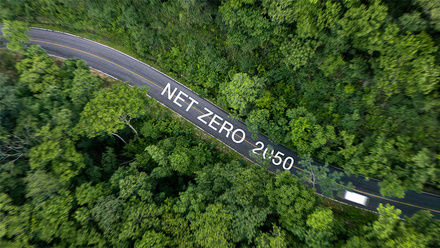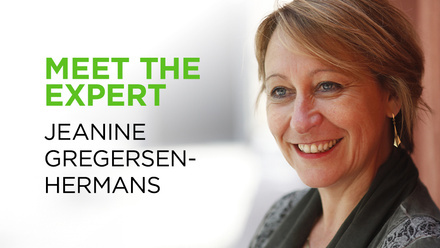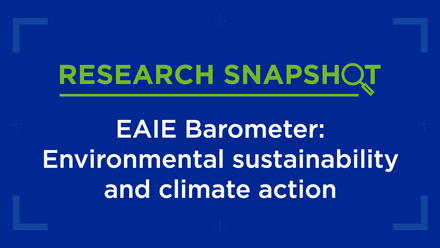Linking hands in pursuit of the SDGs

The 2nd International Conference on the Sustainable Development Goals (SDGs) organised by the Global University Network for Innovation (GUNi) last week in Barcelona was a quite unique forum for international educators to exchange and reflect on how higher education takes on the SGDs. An inspirational opening speech by Daniella Tilbury set the tone with an invitation to universities to become social disruptors. I would add that SDGs give us purpose: international education for fair globalisation.
Universities have embraced the SDGs and claimed their own role not only in advancing education, but in contributing more widely by producing socially meaningful research and training. At the conference, some good examples were presented of current practice and experience in campus operations, strategic planning, community action, faculty and student competences, responsible research, curriculum review, international networking and other approaches to SDGs within university missions.
There are multiple ways to live by the SDGs but the biggest challenge of all is to promote systemic change that goes beyond individual interventions
Stirred by the sessions and with high spirits, the participants’ general feeling was that there are multiple ways to live by the SDGs but the biggest challenge of all is to promote systemic change that goes beyond individual interventions. Many universities are implementing specific projects around the SDGs, but fewer have been able to adopt system-wide measures to drive change in institutional culture.
What can universities do?
In an attempt to do so, my own university, Pompeu Fabra, has recently updated its original vision of a university centred around the human being in its social, communicative and biological natures to an SDG-aligned idea of ‘planetary well-being’, where individual, social and environmental well-being come together. Current and new teaching and research will be articulated and supported to enhance social impact under this transversal strategy to achieve the SDGs.
In the words of Daniella Tilbury, universities need to choose whether we want to be mirrors of society or rather social disruptors driving innovation and change, while becoming role models ourselves of ethical responsibility and critical thinking. There is a need for brave and engaged leadership to take the path of disruption and shake up the status quo in order to design a new system with the SDGs really at the core of universities to shape future societies. And we need students, both as activists who gain access to new forms of university governance and as agents and co-creators of knowledge. Will the European Universities Initiative, so keen to bring students on board and so determined to foster innovative decision-making by higher education institutions, drive this systemic change?
Getting there
In order to keep track of universities’ contributions to the 2030 Agenda, there are different initiatives worth mentioning.
On the one hand, the IAU (International Association of Universities) surveys universities every three years to provide a comparative analysis of trends worldwide in understanding and approaching sustainable development, working with partners around the world. The results of the 2nd survey were delivered in January 2020, and the response rate of European universities (the highest by world region) demonstrates that European universities are taking the SDGs to heart.
The Sustainable Development Goals are only reachable if we work together and ensure that our efforts are all moving in the same direction
On the other hand, last year Times Higher Education (THE) launched the first attempt to capture universities’ contributions to the SDGs in the form of a world ranking, calibrating performance indicators for the different goals. As you can imagine, this league table is not exempt from controversy: is it a useful benchmarking exercise, or will it just start a new race in a field where our cumulative efforts matter more than competition between individual institutions?
Universities are key players in terms of knowledge generation, professional training and civic engagement with their local communities, and more widely when they operate globally. As international educators, it is our responsibility to give the SDGs a central place in our strategies and critically assess our own practices so that the economic, social and environmental impact is balanced. Moreover, as a collaborative community, we must remind ourselves that the Sustainable Development Goals are only reachable if we work together and ensure that our efforts are all moving in the same direction.






